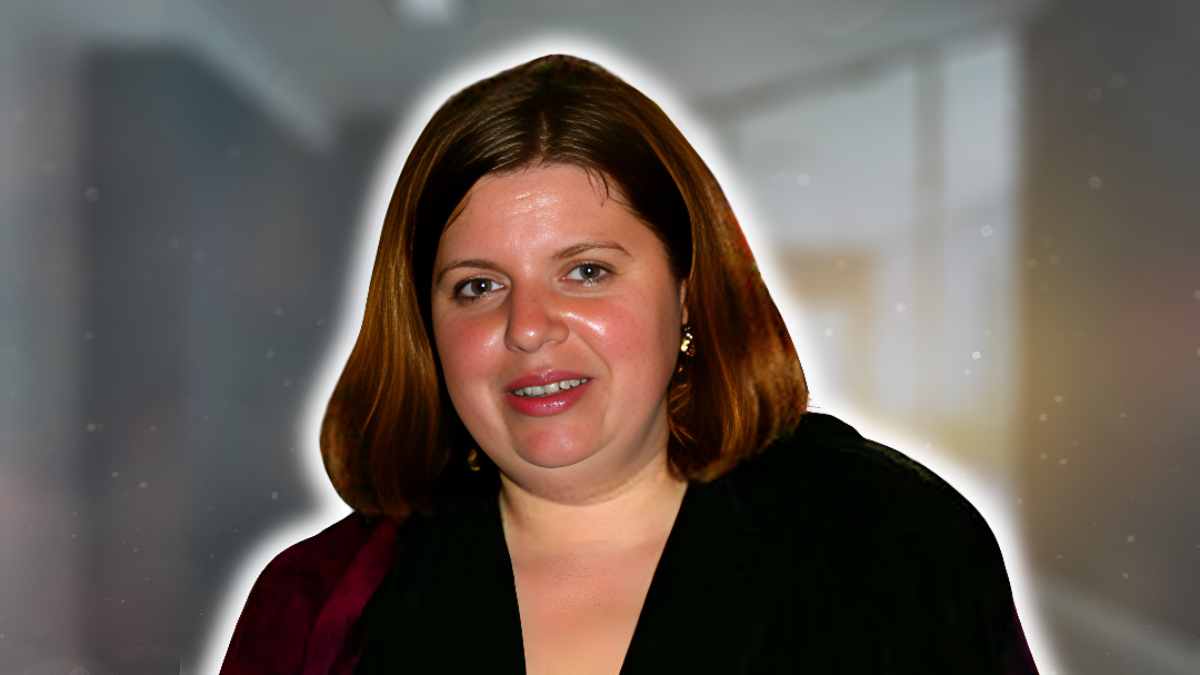Fiona Slomovic: Champion of SEN Advocacy and Innovation in Education

Fiona Slomovic is a name that resonates in the world of Special Educational Needs (SEN) advocacy in the United Kingdom. Over more than a decade she has dedicated her professional life to ensuring that children with additional needs receive the rights, resources, and respect that the law and good practice demand. With a background in finance, an MA from Oxford, and years of hands-on experience, Fiona brings together astute legal awareness, compassion, and strategic advocacy to her work. In this extended profile, we explore her journey, her impact, her approach, and what sets her apart in the SEN sector today.
Early Life, Education and Career Transition
Fiona Jane Slomovic was born in September 1964. Though she began her professional life in the finance sector, her path changed when she shifted focus towards children’s rights and educational law. Her sharp analytical skills, honed in finance, proved invaluable when navigating the complex terrain of SEN legislation and education law. She earned an MA from Oxford’s Exeter College, a credential that not only reinforces her academic grounding, but also underscores her respect for rigour and evidence-based practice.
The decision to leave a more traditional finance career in favour of SEN advocacy was not made lightly. For Fiona, it stemmed from a fundamental belief in equity and a recognition that too many families lacked sufficient support when navigating education systems. Her early engagements in advocacy revealed systemic issues around access, funding, and understanding of SEN – problems that would shape her lifelong mission.
Founding Advocacy & Mediation Consultants Ltd
In 2010, Fiona Slomovic established Advocacy & Mediation Consultants Ltd. The organisation provides guidance to families, schools, and local authorities in matters of SEN – particularly around Education, Health & Care Plans (EHCPs), dispute resolution, mediation and legal appeals. Under Fiona’s leadership, the firm has become known for clarity, persistence, and thoroughness.
Unlike some services which only offer legal representation or paperwork assistance, Fiona’s organisation emphasises a holistic model: helping parents understand their rights, coaching them through meetings, helping draft submissions, and where necessary taking cases to tribunal. She combines mediation skills with legal knowledge, often seeking outcomes through negotiation before litigation. This dual skills set is rarer than it seems in an advocacy context, and has helped many families achieve solutions without protracted conflict.
Legal and Regulatory Landscape of SEN in the UK
To appreciate Fiona’s work, it helps to understand the legislative framework within which she operates.
The Children and Families Act 2014 introduced Education, Health & Care Plans, replacing old statements of SEN, and placing greater emphasis on joint responsibility across services.
The Special Educational Needs and Disability (SEND) Code of Practice provides statutory guidance for how organisations should carry out their duties, with emphasis on early identification, inclusion, and personalised support.
When families and local authorities disagree over an EHCP, there are rights of appeal via the First-tier Tribunal (Special Educational Needs and Disability). Before Tribunal, mediation or other dispute resolution is usually required.
Fiona Slomovic’s work intersects with these legal mechanisms at every level. She helps families draft responses compliant with the law, supports them through consultative processes, and when appropriate represents or guides them in appeals.
Key Contributions and Advocacy Focus
Over the years, Fiona has made several important contributions to the SEN sector.
Supporting Families with EHCPs: Many parents struggle to secure appropriate EHCPs or to get correct assessments. Fiona helps demystify the process, assesses gaps, writes submissions, and provides informed advice on what outcomes might be realistic and lawful.
Dispute Resolution and Mediation: By offering mediation and fostering constructive dialogue, she reduces adversarial tension. Her work often prevents small misunderstandings from escalating into full legal battles – saving stress, time, and expense.
Training and Workshops: Fiona provides training to parents, schools, and professionals. These sessions focus on rights, law, best practice in inclusive education, and how to ensure that each child’s plan is tailored to actual needs.
Public Policy Engagement: She reflects on systemic issues such as underfunding, inconsistent implementation across local authorities, and variation in school capacities. Her experience gives her credibility when contributing to discussions about national policy, funding for support services, and regulation.
Personal Qualities and Methods
What distinguishes Fiona Slomovic is not just what she does, but how she does it. Several traits stand out.
Empathy with Professionalism: She listens to families carefully, understands their anxieties, and explains legal rights in accessible terms.
Thoroughness of Preparation: Every case is built on evidence: reports, assessments, behaviour records, school communications. She leaves little to chance.
Strategic Mindset: She assesses when mediation or negotiation is sufficient, when escalation may be required, and what outcomes are realistic.
Advocacy with Respect: Even in adversarial situations, Fiona often seeks to maintain professional relationship with schools and authorities. She understands that collaborative attitudes can open doors.
Clarity in Communication: One of the most common complaints from parents in the SEN system is jargon, unclear reports, or miscommunication. Fiona strives to translate legal or bureaucratic language into terms that parents understand and makes case arguments that are clear, structured, and compelling.
Impact on Families and Education
The real measure of Fiona Slomovic’s contribution is in the outcomes for children and their families. Feedback from those she has worked with often mentions improvements to EHCPs that ensure timely support, therapy access, or specialist resources, reduced delays in assessments or EHCP plans being enacted, better resource allocation from local authorities due to properly constructed evidence-based requests, reduced stress and confusion for families, particularly where previously they felt isolated or overwhelmed, and increased confidence among parents to know and assert their legal rights – which can have ripple effects in ensuring better oversight and awareness in their local community.
Challenges and Barriers
Despite Fiona’s expertise and commitment, the landscape she works in is far from perfect. Some ongoing challenges include resource constraints in local authorities, variable quality of expert reports, legal delays and bureaucratic processes, inequalities across regions, and the need to keep up with changes to policy and case law.
Fiona’s role often includes helping families navigate these barriers: advising on how best to frame arguments, sourcing credible expert reports, and ensuring legal compliance in submissions.
Case Studies and Successes
While respecting confidentiality, several types of success stories illustrate her impact. A child whose EHCP lacked access to occupational therapy had this need recognised after careful evidence gathering and a series of meetings arranged by Fiona, leading to timely therapy and improved school integration. Families whose applications for specialist placements were initially refused later secured them via appeals, with Fiona’s assistance in both case-writing and Tribunal preparation. Mediation cases where disagreements over wording or resource allocation were resolved without needing formal legal proceedings preserved more harmonious relationships.
Wider Sector Influence and Thought Leadership
Fiona’s influence extends beyond individual cases. Her public talks, workshops and training help build capacity: parents, teachers, school support staff become more aware of SEND law, their rights, and good practice steps. She contributes to policy discussions and brings practical insight into what works and what reforms could ameliorate system weaknesses. She is cited by other SEN advocacy services as a trusted peer, often recommended for her rigour, integrity and success record.
What Makes Her Distinctive
Many good advocates operate in the SEN space, but a few features set Fiona Slomovic apart. She combines legal knowledge and mediation skills, follows an evidence-driven approach, empowers families by educating them, takes a long-term view by anticipating future issues, and leverages professional experience in multiple sectors including finance.
Key Advice from Fiona Slomovic
Based on her work, several pieces of advice consistently emerge. Keep records of everything including communications, assessments, and observations. Get expert reports when needed, ensuring they are clear, up to date and by someone credible. Understand the law, including what the SEND Code of Practice requires and what rights parents have. Do not accept “no” without examination; there are often grounds for appeal. Consider mediation early because resolutions outside Tribunal are often faster, less stressful, and still binding. Be persistent, as clarity of argument and perseverance often win through.
The Future: Priorities and Opportunities
Looking ahead, several areas seem particularly ripe for further work—and where Fiona Slomovic is positioned strongly to contribute. Policy reform is needed as pressure grows on local authority budgets and parental demand for support increases. National standardisation would reduce regional inequalities. Digital tools and transparency could help track EHCP process timelines and support parents with information. Partnerships with health services, social care, mental health providers, and schools are crucial to integrate care and support across sectors. Greater awareness and stigma reduction through public education and better communication can further strengthen the system.
Conclusion
Fiona Slomovic stands as a leading figure in the realm of SEN advocacy in the UK. Through a blend of legal knowledge, mediation skill, persistence, and compassion, she has helped transform many individual lives. Her model—empowering parents, insisting on evidence, engaging collaboratively when possible—offers a blueprint for how advocacy work in education should be conducted. As the sector continues to face financial pressures, regional disparities and growing demand, voices like hers are essential in guiding reform and ensuring rights are lived out, not just written. For every family seeking support, knowing that someone like Fiona Slomovic exists is more than reassurance—it is a pathway toward fairness, clarity, and justice in education.



